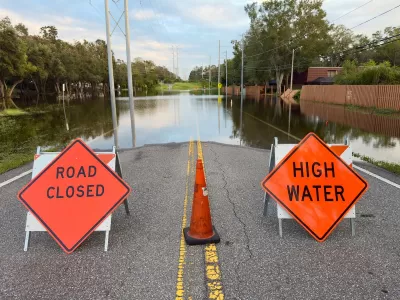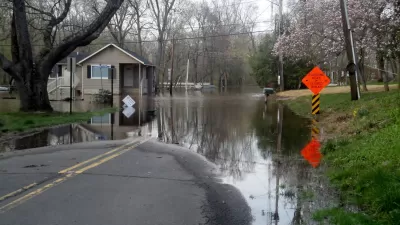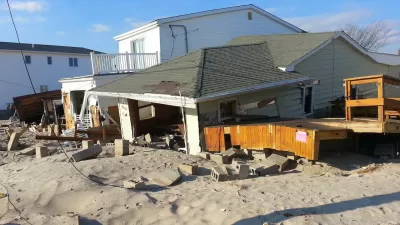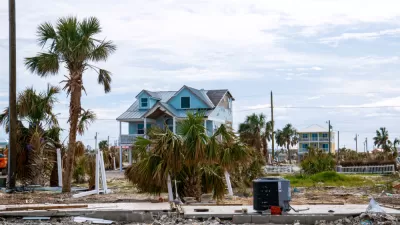The rule was designed to prevent the rebuilding of government-funded projects in areas prone to repeated floods.

The Federal Emergency Management Agency (FEMA) will stop enforcing a rule finalized last year that requires buildings receiving public assistance to be built to withstand future flood risk, whether that means relocating or elevating the building or otherwise mitigating the risk.
The Federal Flood Risk Management Standard is designed to discourage construction in areas at risk for repeated flooding, explains Robert Freedman in Smart Cities Dive. According to FEMA, “it requires agencies to determine specific federal building or project dimensions – that is, how high and how wide and how expansive a building or project should be – in order to manage and mitigate any current or potential flood risks.”
The rule is suspended while the new department leadership decides whether it should be revoked or amended. “Legal scholars say FEMA is inviting a challenge on whether it has the authority not to enforce the rule while it’s under review.”
FULL STORY: FEMA halts enforcement of flood rebuild rule, New York Times reports

Planetizen Federal Action Tracker
A weekly monitor of how Trump’s orders and actions are impacting planners and planning in America.

Restaurant Patios Were a Pandemic Win — Why Were They so Hard to Keep?
Social distancing requirements and changes in travel patterns prompted cities to pilot new uses for street and sidewalk space. Then it got complicated.

Map: Where Senate Republicans Want to Sell Your Public Lands
For public land advocates, the Senate Republicans’ proposal to sell millions of acres of public land in the West is “the biggest fight of their careers.”

Maui's Vacation Rental Debate Turns Ugly
Verbal attacks, misinformation campaigns and fistfights plague a high-stakes debate to convert thousands of vacation rentals into long-term housing.

San Francisco Suspends Traffic Calming Amidst Record Deaths
Citing “a challenging fiscal landscape,” the city will cease the program on the heels of 42 traffic deaths, including 24 pedestrians.

California Homeless Arrests, Citations Spike After Ruling
An investigation reveals that anti-homeless actions increased up to 500% after Grants Pass v. Johnson — even in cities claiming no policy change.
Urban Design for Planners 1: Software Tools
This six-course series explores essential urban design concepts using open source software and equips planners with the tools they need to participate fully in the urban design process.
Planning for Universal Design
Learn the tools for implementing Universal Design in planning regulations.
Heyer Gruel & Associates PA
JM Goldson LLC
Custer County Colorado
City of Camden Redevelopment Agency
City of Astoria
Transportation Research & Education Center (TREC) at Portland State University
Camden Redevelopment Agency
City of Claremont
Municipality of Princeton (NJ)





























